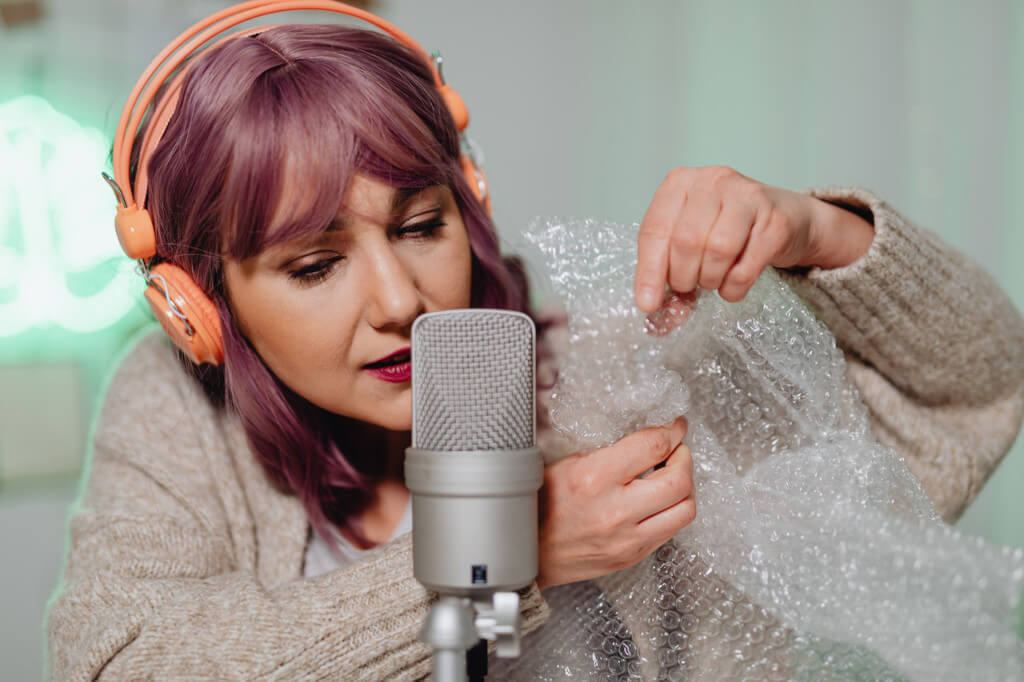ASMR, which stands for autonomous sensory meridian response, is a feeling of tickling that starts in the head and neck and moves down the body. ASMR can be caused by a variety of visual and auditory cues, like watching someone try to massage or brush their hair, or by listening to soft sounds like whispering or tapping. ASMR videos are easy to find on sites like YouTube, and each one has thousands or even millions of followers and views.
People have different sets of things that set them off. But millions of people around the world use ASMR to help them relax, fall asleep, and deal with worry.
Even though there is more interest in studying ASMR, there is still a lot we don’t know about it. Why do some people get tingles and others don’t, for example? Could it help to think of ASMR as a form of therapy if we knew more about the mental traits that are linked to it?
A recent study shows that people who can get ASMR are more likely to be neurotic. The nervous personality trait is marked by depression, self-doubt, and other bad feelings. Nervousness and other bad feelings are also linked to neuroticism. We also know that people with a lot of anxiety may watch ASMR movies often to relax and calm down.
Few studies have looked at how ASMR pictures affect anxiety or if there is a link between ASMR and being a nervous person. The goal of our new study is to add to what is already known in these fields.
What We Did
We asked 36 people with ASMR and 28 people who don’t have ASMR to help us. All of the people in the study watched a five-minute movie that had a bunch of the most common ASMR triggers in it.
Before watching the movie, the subjects’ trait anxiety, their tendency to feel constant anxiety, and their state anxiety were all measured with questionnaires. After seeing the movie, they were asked to fill out a survey about their nervousness.
Neuroticism and trait anxiety were much more common in people who experienced ASMR than in people who didn’t, which suggests that these traits are linked to being able to feel ASMR. Before watching the video, people who have experienced ASMR tend to feel a lot more anxious, but afterward, they feel a lot less anxious.
But when the non-experiencers’ state worry levels before and after watching the film were compared, there was no change. So the ASMR movie made people less stressed, but only if they usually feel stressed.
A woman listening to music on her headphones while using her laptop in a park.
Videos on YouTube that make people feel ASMR have become very popular. Photo by Jacob Lund used as stock
When we looked at the data again, however, we found that the ASMR video had a positive effect on the anxiety levels of people who were more likely to be nervous and anxious in general, whether they experienced ASMR or not.
As a choice for treatment, ASMR shows how important it is to have unique personality traits. It also shows that you don’t have to feel the “tingle” to get something out of ASMR movies.
Other studies have also found that people who experience ASMR have higher amounts of being nervous. Our research shows that people with more worry are also more likely to experience ASMR.
Those who have ASMR said that seeing the ASMR movie made them feel less anxious. Our results suggest that ASMR may have a calming effect on everyone. This makes sense since many people who are interested in ASMR do so for healing reasons.
So, even if you don’t do ASMR things like watch ASMR movies or feel ASMR tingles often, those who are more likely to be nervous or anxious may benefit from doing them.
What’s Next?
Our study had a very small sample size, and we can’t say for sure that the people who took part were more likely to enjoy ASMR. Because of this, more studies will need to be done with people who have never heard of ASMR.
The possible benefits of ASMR as a psychological treatment for people with worry need to be looked into more. In similar news, ASMR recordings may soon be used as a form of digital therapy for mental health problems.
In the meantime, the neuroimaging study is giving us more information about this behaviour. Electroencephalography (EEG), a type of brain imaging, has shown that the electrical activity in the brain that is usually linked with calm (like in mindfulness meditation) went up in reaction to ASMR stimuli. This was measured by researchers who looked at the electrical activity in the brain during ASMR. This was true even when people were trying to do something hard in their minds.
The results of these studies suggest that ASMR causes changes in brain activity that are similar to a feeling of relaxation, which may be present even when doing everyday chores. In addition to studying how people act, neuroimaging studies could help us figure out how ASMR might help people feel less anxious.




